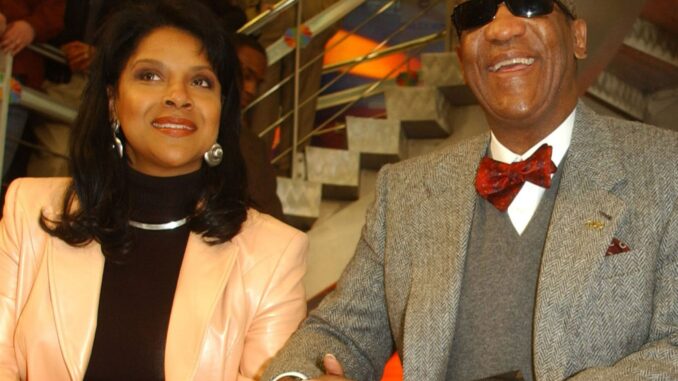
The Cosby Show premiered on September 20, 1984, and quickly became a cornerstone of American television, running for eight successful seasons until April 30, 1992.
At the heart of The Cosby Show was the Huxtable family, led by patriarch Dr. Heathcliff “Cliff” Huxtable, portrayed by Bill Cosby. Cliff was a successful obstetrician, whose warm, humorous demeanor and relatable parenting style made him a beloved character. He was not just a father but also a mentor, offering wisdom and guidance to his children while navigating the ups and downs of family life.
Cliff’s wife, Clair Huxtable, played by the talented Phylicia Rashad, was an equally strong character. As a Harvard-educated attorney, Clair represented the modern, accomplished woman of the time, balancing her demanding career with the challenges of motherhood. Her role was pivotal in showcasing a Black family that defied stereotypes, emphasizing education, professionalism, and love.

Together, the Huxtables had five children, each bringing their unique personalities and challenges to the show: Sondra Huxtable (played by Sabrina Le Beauf): The eldest daughter, Sondra was often portrayed as the more responsible and academically focused sibling. Her character represented the journey of young adulthood, including the challenges of college life and relationships.
Denise Huxtable (played by Lisa Bonet): The free-spirited and artistic middle daughter, Denise became a cultural icon in her own right. Her bohemian style and independent nature captured the essence of youth and self-exploration, making her a relatable character for many viewers. Theo Huxtable (played by Malcolm-Jamal Warner): The only son, Theo was the embodiment of the typical teenage boy, dealing with the pressures of school, friendships, and self-identity. His struggles with dyslexia were addressed on the show, contributing to important conversations about learning differences.
The Cosby Show was more than just a television series; it was a cultural phenomenon that transformed the portrayal of Black families in media. By presenting the Huxtables as a loving, successful family, the show challenged prevailing stereotypes and offered a narrative of aspiration and achievement. The diverse experiences of the Huxtable children allowed viewers to engage with real-life issues, from academic pressures to family dynamics, all infused with humor and heart.
The Cosby Show remains a landmark in television history, with the Huxtable family at its center. Bill Cosby and Phylicia Rashad, alongside a talented ensemble cast, created a show that resonated with audiences and offered a new lens through which to view Black family life. The diverse experiences of the Huxtable children highlighted the complexities of growing up, while the love and support of their parents served as a foundation for their journeys.
Even decades after its original airing, the legacy of The Cosby Show continues to influence television, reminding us of the importance of representation and the power of family storytelling. Through laughter, love, and important life lessons, the Huxtables have secured their place in the hearts of viewers and in the annals of television history.
